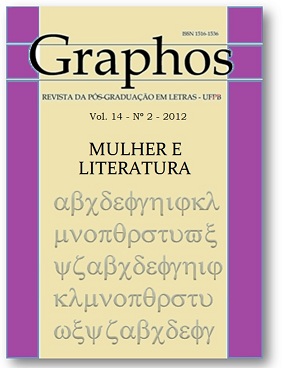Challenging the literary canon: Lésbia and the nineteenth-century novel of female authorship
Keywords:
Lésbia, feminine authorship literary canon, feminist criticismAbstract
In brazilian belle époque, many women who have dedicated themselves to the craft of letters succeeded recognition among their peers men. Lésbia, by Maria Benedita Bormann, is a groundbreaking work, being a Künstlerroman who brings up the woman writer in her journey for social recognition. This paper sets out some of these questions, such as the importance of authorship and a frame of reference for women who start writing and find a canon established, highly unfavorable criticism and great prejudice. The feminist criticism (gynocritics), by the fact that carried out the rereading of canonical works, searched for books written by women and even proposed a kind of rewriting of culture, provides fundamental tools for understanding these pioneering women. Lésbia is a work that, fictionally, anticipates some of the major issues that are part of the agenda of feminist criticism.
Downloads
References
BORMANN, Maria Benedita Câmara (Délia). Lésbia. 1ª. Ed. 1890. Introdução de Norma Telles. Florianópolis: Editora Mulheres, 1998.
CAMPOS, Maria Consuelo Cunha. Gênero. In: Jobim, José Luís (org.). Palavras da crítica. Rio de Janeiro: Imago Editora Limitada. 1992. p. 111-126.
GILBERT, Sandra M. e GUBAR, Susan. The madwoman in the attic: the woman writer and the nineteenth-century literary imagination. New Haven and London: Yale University Press. 1984.
GOLDMANN, Lucien (org.). Sociologia da literatura. São Paulo: Mandacaru, 1989.
JÚNIOR, Araripe. Obra crítica. In: COUTINHO, Afrânio (Dir.) Obra crítica de Araripe Júnior. Rio de Janeiro: Ministério da Educação e Cultura: Casa Rui Barbosa, v. II, 1960.
MACEDO, Ana Gabriela e AMARAL, Ana Luísa (orgs.). Dicionário da crítica
feminista. Porto: Edições Afrontamento, 2005.
MOREIRA, Nadilza Martins de Barros e SCHNEIDER, Liane (orgs). Mulheres no
Mundo: etnia, marginalidade e diáspora. João Pessoa: Idéia, 2005.
PERRONE-MOISÉS, Leyla. Altas literaturas: escolha e valor na obra crítica de
escritores modernos. São Paulo: Companhia das Letras, 1998.
PINTO, Celi Regina Jardim. Uma História do Feminismo no Brasil. São Paulo: Editora
Fundação Perseu Abramo, 2003.
REIS, Roberto. Cânon. In: Jobim, José Luís (org.). Palavras da crítica. Rio de Janeiro:
Imago Editora Limitada. 1992. p. 65-92.
SANTOS, Maria Irene Ramalho de Sousa. O cânone nos estudos anglo-americanos. In:
O cânone nos estudos anglo-americanos (org. Isabel Caldeira). Coimbra: Minerva,
TELLES, Norma. Encantações: escritoras e imaginação literária no Brasil no século XIX, PUC-SP, 1987.
____. Autor+a. In: JOBIM, José Luís (org.). Palavras da crítica. Rio de Janeiro: Imago Editora Limitada. 1992. p. 45-64.
____. Introdução. In: BORMANN, Maria Benedita Câmara (DÉLIA). Lésbia. 1ª. Ed. 1890. Florianópolis: Editora Mulheres, 1998.
____. Escritoras brasileiras no século XIX. In: _____ GOTLIB, Nádia (org.). A mulher na literatura (vol. 3). Belo Horizonte, Imprensa da Universidade Federal de Minas Gerais, 1990.
WOOLF, Virginia. A room of one’s own. England: Penguin Books, 2004.







